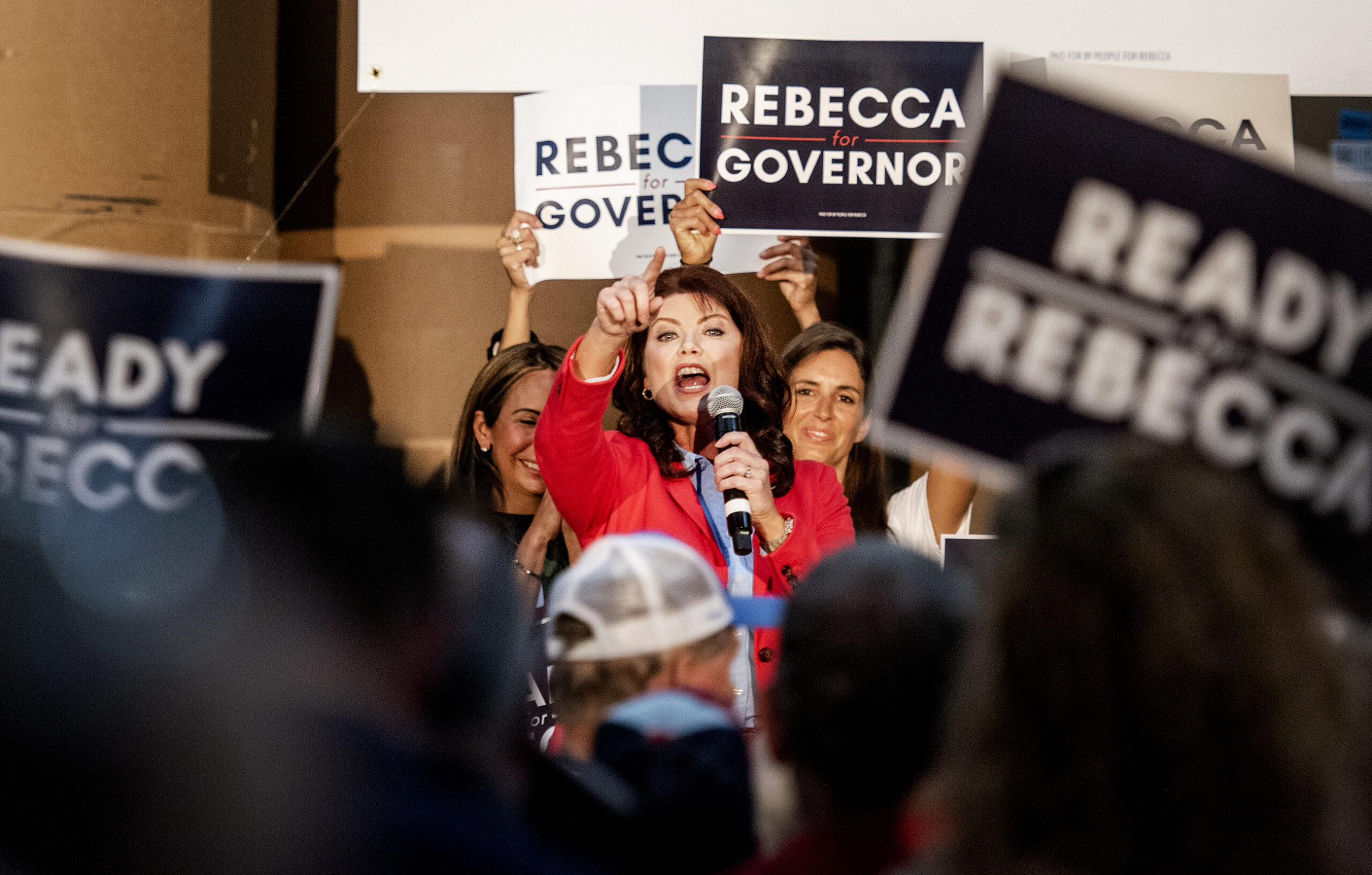GOP candidate for governor Rebecca Kleefisch filed a lawsuit Monday against the Wisconsin Elections Commission, calling on the state Supreme Court to suspend guidance the commission issued to local election officials ahead of the 2020 election.
The lawsuit asks the state’s highest court to take the case immediately, bypassing lower courts that would typically handle such matters first. It argues guidance related to absentee ballot drop boxes, polling place locations and voting in nursing homes violated state laws on the subjects and should be changed ahead of the state’s 2022 election.
The issues were recently surfaced in a nonpartisan audit of election administration in the state. The audit found no widespread fraud or wrongdoing that would have altered election results, but made more than two dozen recommendations for updates to elections commission policies and state laws governing elections.
News with a little more humanity
WPR’s “Wisconsin Today” newsletter keeps you connected to the state you love without feeling overwhelmed. No paywall. No agenda. No corporate filter.
In a prepared statement, Kleefisch said her lawsuit forces the Wisconsin Elections Commission to “clean up their act prior to administering the 2022 election.”
“Our freedom, our way of life, and the future of our great nation all depend on free and fair elections — elections where every voter can trust the process and the result,” she said. “Wisconsinites are sick and tired of unelected bureaucrats intentionally ignoring the law.”
Related to absentee ballot drop boxes, Kleefisch’s lawsuit argues the elections commission illegally allowed their use in 2020, because there is no provision in state law that allows ballots to be returned other than by an in-person drop off to a clerk’s office or by mail.
The drop boxes were used widely in Wisconsin and across the country in 2020 because of the COVID-19 pandemic.
On its website, the elections commission argues no Wisconsin court has barred the use of drop boxes and that the commission “continues to view the use of secure absentee ballot drop boxes as a decision to be made by local elections officials in coordination with their counsel.”
Regarding voting in nursing homes, the lawsuit contends that March 2020 elections commission guidance directing nursing homes to have residents vote by mail with the help of facility staff, rather than with the help of in-person “special voting deputies,” violated state law.
Special voting deputies are people deputized by the county clerk to administer absentee voting in nursing homes and qualified care facilities. State law requires two special voting deputies to visit those facilities twice before each election. It includes a provision that allows facility residents to be sent a ballot, but only if they are not able to vote with the help of the special voting deputies during the two scheduled visits.
At the time, the elections commission said it believed special voting deputies wouldn’t be allowed in nursing homes and care facilities because of Gov. Tony Evers’ March 2020 pandemic-related executive order and subsequent guidance from the state Department of Health Services about “non-essential” travel and services.
Last month, the Racine County sheriff raised concerns about how voting was conducted in a nursing home in his community, arguing some residents were improperly influenced by staff. Republicans have pushed for follow up on those allegations, but no criminal charges have yet been filed.
Finally, related to polling places, Kleefisch’s lawsuit argues the elections commission illegally allowed local election officials to consolidate or move polling places in 2020 without required approvals.
State law dictates polling places must be established 30 days before an election and that in cities with a population of more than 500,000, polling places are established by the board of election commissioners. In smaller communities, the polling places must be “at the places established by the governing body.”
At the time it issued the guidance, also in March 2020, the commission said giving clerks more flexibility to move polling places was necessary because the current pandemic-related state public health order closed some facilities that serve as polling places to public access, like nursing homes. That order came less than 30 days before the April presidential primary.
The Wisconsin Elections Commission declined to offer any additional comment Monday on the lawsuit’s allegations.
Wisconsin Public Radio, © Copyright 2025, Board of Regents of the University of Wisconsin System and Wisconsin Educational Communications Board.







